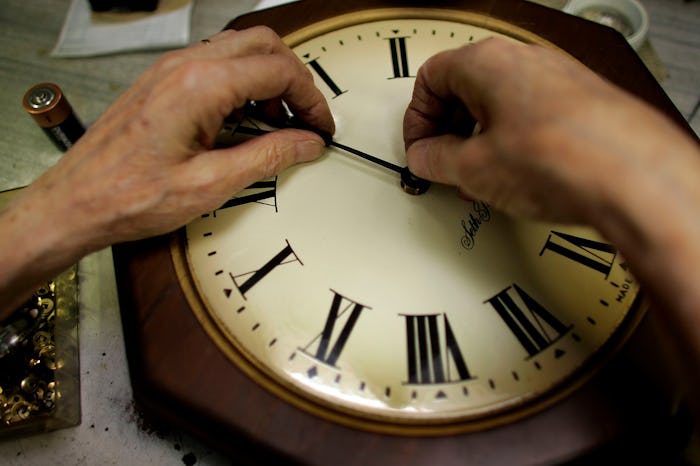News

What Does It Mean When Daylight Saving Time Ends?
I'm going to admit something to you guys; I have never fully understood the point of daylight saving time. That whole "spring ahead, fall back" things always felt like a test, a road block set in my path to see if I could manage to get the kids to school on time if the entire country was messing with their clocks. Spoiler alert; no I did not. So today I am on a mission to discover what it means when daylight saving time ends, because if I'm going to get way less light in the evening I kind of want to know why.
So on Saturday at midnight we will be turning the clocks back an hour which means we get to sleep in on Sunday. Unless you have small children who can't tell time, then you will be getting up at regular time but have to wait for the rest of the world to catch up with you. Parenting surely is a lonely business... The whole daylight saving time business started back during World War One as a nod to conserving energy (back when people used coal for energy), and was adopted by the whole nation in the sixties. In April, people turned their clocks back an hour obediently to save on energy consumption in the summer, and turned them ahead that same hour. Because we do what we're told. Because we're "sheeple", I guess.
Here's the problem with the whole theory that daylight saving time actually saves energy; it doesn't really. Or if it does, it's hard to pinpoint. The National Research Institute of Canada conducted a massive review of scientific literature in 2008 to find out if daylight saving time saved on energy and came to this conclusion; maybe?
There is general consensus that DST does contribute to an evening reduction in peak demand for electricity, though this may be offset by an increase in the morning.
Next year I say we stage a revolt. I would way rather have a little more light in the evening than a reasonable sunrise (on account of never seeing the sunrise no matter what time it comes up). And I'm not the only one out there who would prefer evening sunlight. Kids need that sunlight too. A 2014 BioMed study "found that longer evening daylight was independently associated with a small increase in daily physical activity."
As we all know, there is nothing more depressing than going to work/school in the dark and then coming home in the dark.
And this is what we get when daylight saving time ends. Darkness. Oh, and an hour of extra sleep if you're not parenting toddlers. So enjoy.